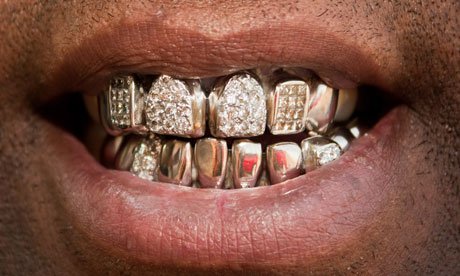-Warns about high crime rate, safety measures in hotels, substandard public health care
By Abena Rockcliffe-Campbell
The Government of Canada did not tell its citizens, point blank, not to visit Guyana. However, it has outlined—on an official government website—the many “risks” associated with travelling to Guyana.
In fact, Canada called on pregnant women and those who plan to become pregnant to “avoid” Guyana and has called on its gay, bisexual and transgender citizens to seriously and carefully consider the risks of travelling here.
Canada states, “The decision to travel is your choice and you are responsible for your personal safety abroad. We take the safety and security of Canadians abroad very seriously and provide credible and timely information in our Travel Advice to enable you to make well-informed decisions regarding your travel abroad.”
However, the Government is warning its citizens to “exercise a high degree of caution in Guyana due to high crime rates.”
Canada said that crime is prevalent across Guyana and assaults, break-ins, armed robberies, pick-pocketing, purse snatching, theft from cars and carjacking are common.
The Government warns, “Be particularly cautious in Georgetown: in Stabroek Market, Tiger Bay and west of Brickdam Street. Canadians have been assaulted and robbed in daylight in other parts of Georgetown, including the city centre. Many crimes are committed along and around the sea wall, from east of the Pegasus Hotel Guyana to Sheriff Street, including the wharf. Violent incidents occur in the East Coast Demerara region (especially near the villages of Buxton and Friendship, the East Bank Demerara region and the New Amsterdam area).”
Further, Canada said that criminals “prefer” to target foreigners and returning Guyanese citizens.
The North American country calls on its citizens to “Avoid showing signs of affluence” and to “arrange to arrive and leave from the airport during the day only” because, “gang members commit violent attacks on the road to and from Cheddi Jagan International Airport, mainly at night.”
Canada said too that, “Foreigners have been injured while being robbed at gunpoint, and some have been attacked after withdrawing money at financial institutions, in shopping districts and in hotels.”
As such, Canada implores its citizens not to change money with street changers; “do so at banks, exchange offices and hotels. Robberies and assaults also occur in taxis. Do not offer resistance.”
According to Canada, even a visit to the Gardens is not safe. It said, “Assaults have taken place in the Botanical Gardens in Georgetown. Visit such sites with an organized tour group, or stay in the more populated areas closer to Vlissengen Road.”
It was also noted that, “Sexual assault, including rape, occurs throughout the country.”
HOTEL AND ROAD SAFETY
Canada is concerned about an incident that occurred at Pegasus Hotel last month.
The Authority noted that on August 5, 2018, a fire broke out at the Guyana Pegasus Hotel. “Fire alarms didn’t go off and some exits were padlocked.”
Canada implores, “If you are staying at a hotel in Georgetown, be aware that fire safety measures might be below Canadian standards. Remain vigilant and ensure that you have different means of egress.”
The Canadian Government said too that, “sporadic demonstrations and gatherings occur throughout the country. On several occasions, political demonstrations resulted in violent clashes and civil unrest, especially at election time. Avoid large crowds and demonstrations, and monitor local news reports for the latest information.”
Further, Canada is telling its citizens that driving in Guyana can be dangerous due to “poor road conditions, inadequate lighting, roaming animals and poor driving habits.”
The measure offered is to “Travel in convoys when possible. Avoid driving at night. Travel to the interior (also known as the hinterlands) is not safe due to low police presence. Always drive in a convoy when visiting the hinterlands.”
It was also noted that response time in the case of traffic accidents may be slow due to a lack of resources. “Injured persons are frequently transported to hospitals or the nearest medical facility by bystanders, unless they are seriously injured. Local authorities are cooperative, but assistance is limited and may only be available during business hours.”
Canada is urging its citizens to avoid using public minibuses, “as they tend to be overloaded, poorly maintained and badly driven. Minibuses are often involved in accidents.
Taxis are the safest means of transportation. “Do not hail taxis from the roadside. Only use taxis that are connected to major hotels or from a reputable company. Exercise constant vigilance and make note of the vehicle’s licence plate before entering, in order to track down the driver in the event of overcharging or lost luggage. Avoid using water taxis to cross international waters. Use the scheduled ferry service, which has a formal border control check point.”
In addition, Canada said, “Pregnant women and those considering becoming pregnant should avoid travel to Guyana.”
The country further stated that the “laws of Guyana prohibit sexual acts between individuals of the same sex. Those convicted can face up to 10 years in prison. LGBTQ2 travelers should carefully consider the risks of travelling to Guyana.”


